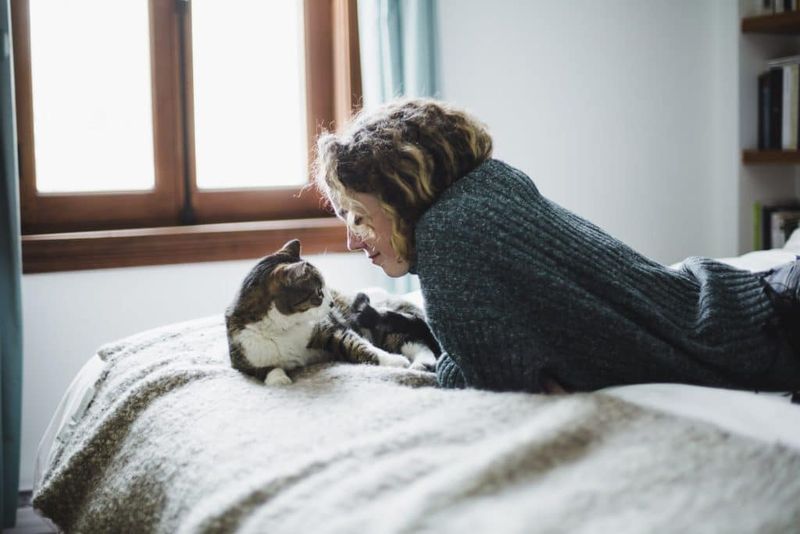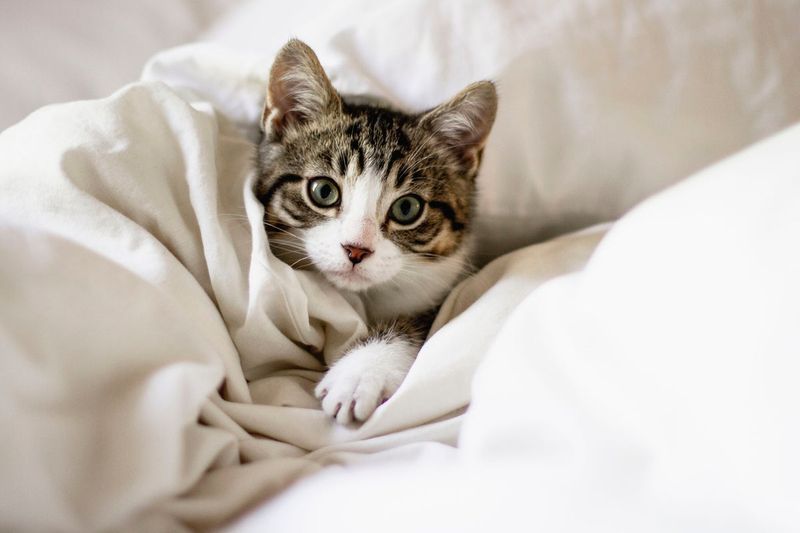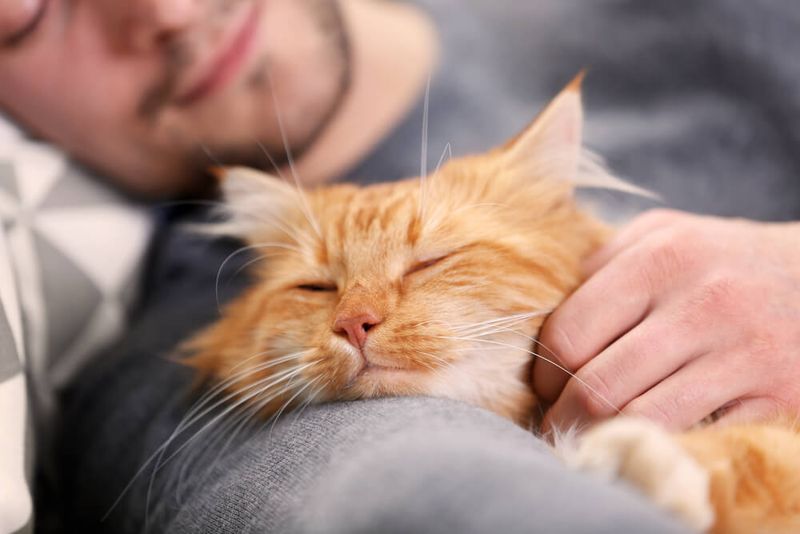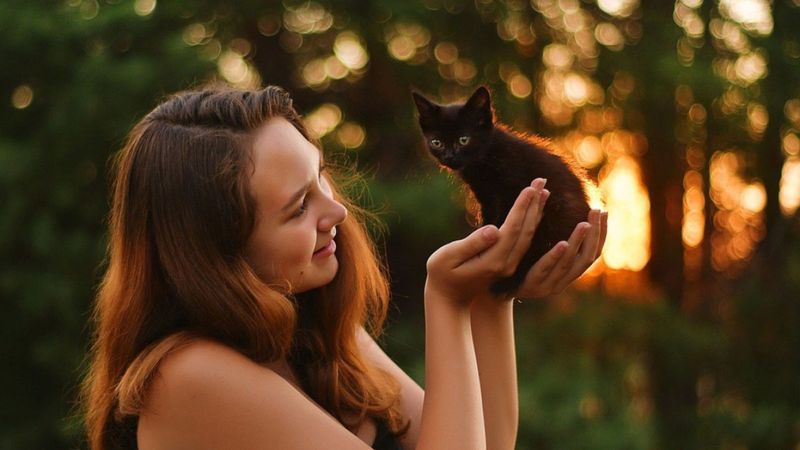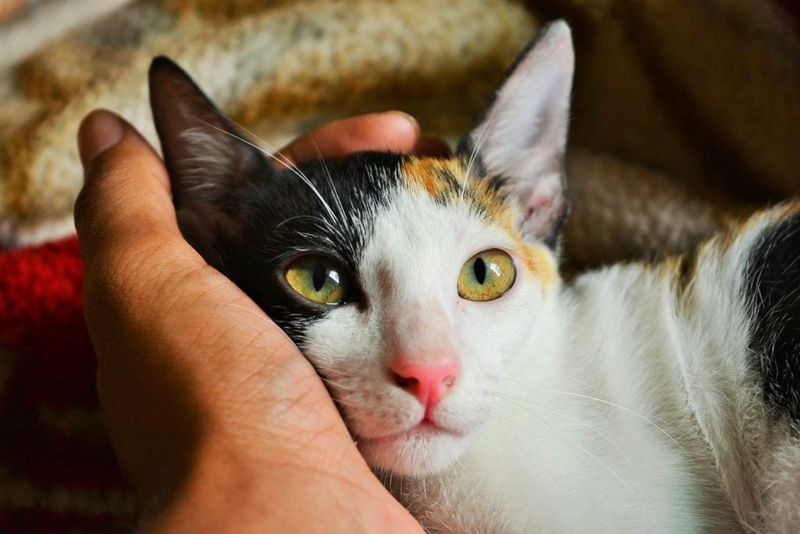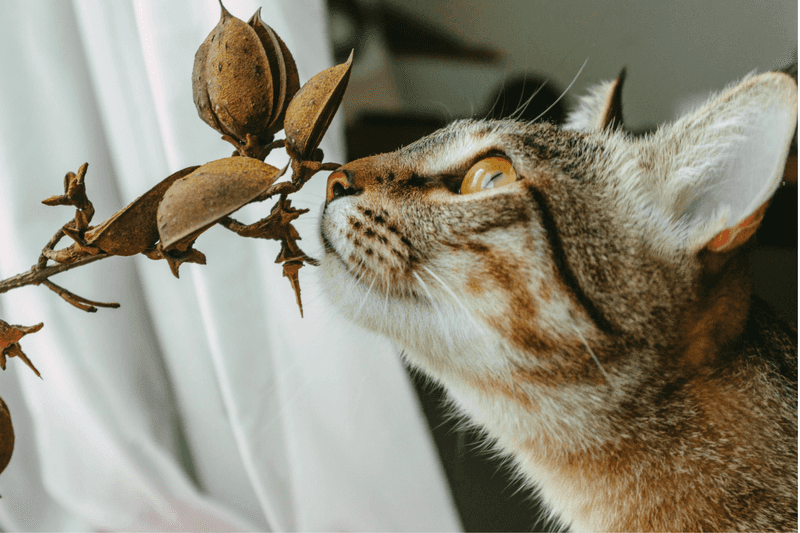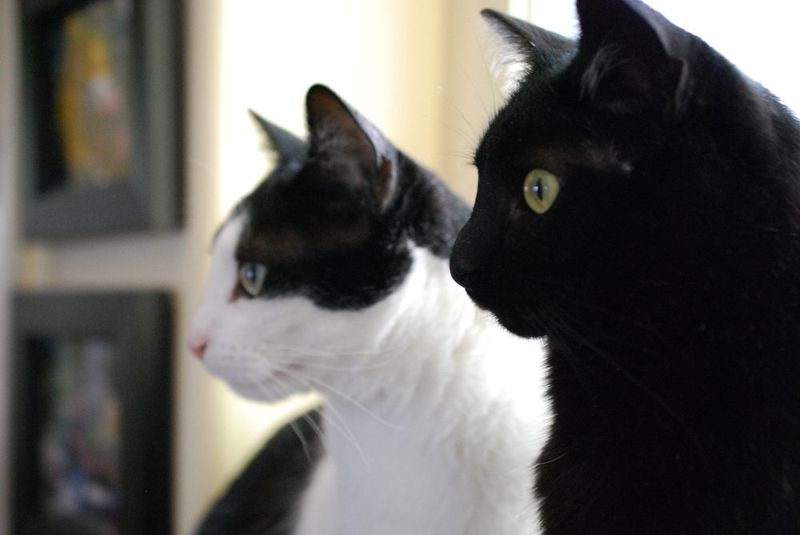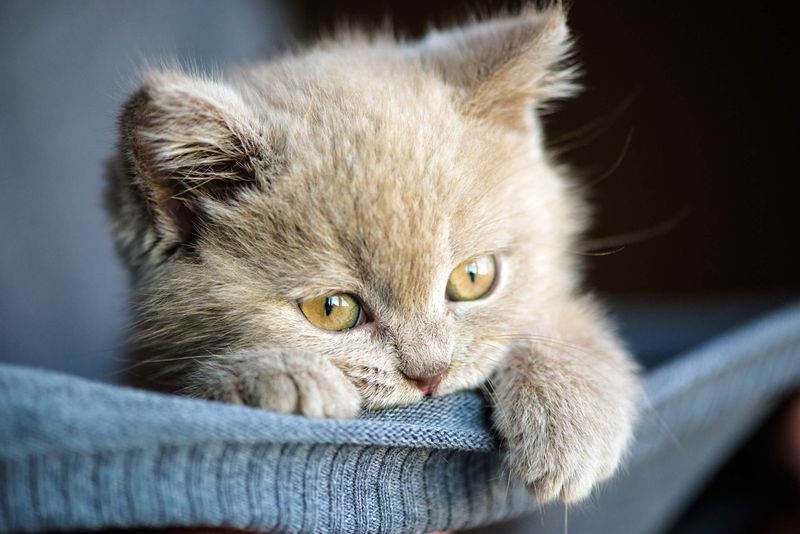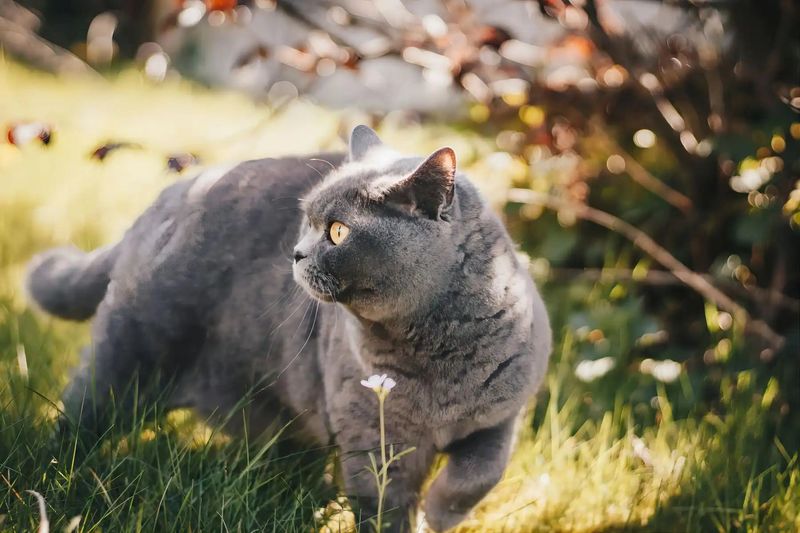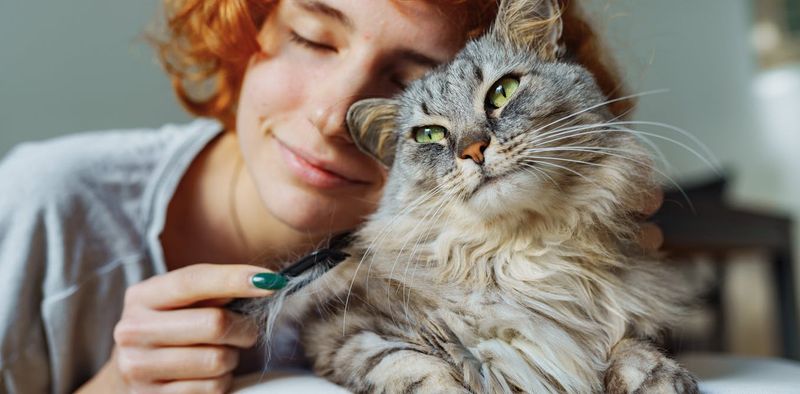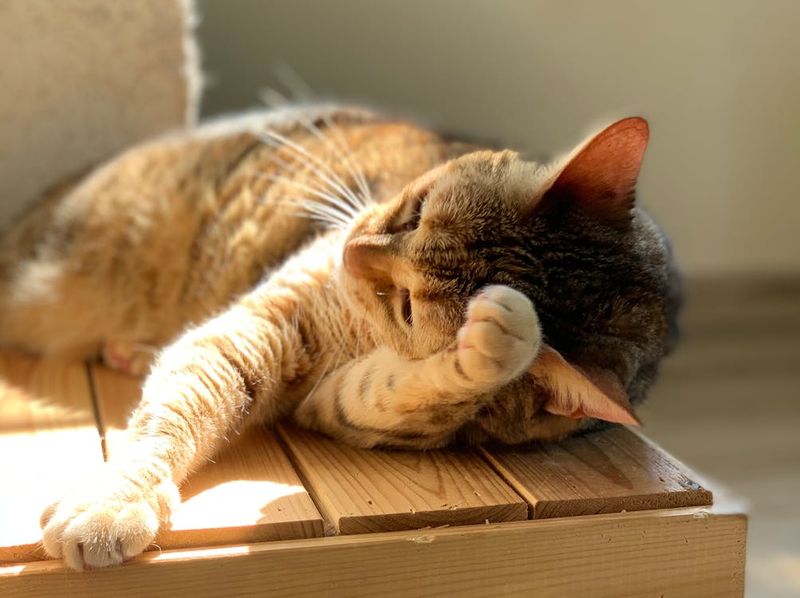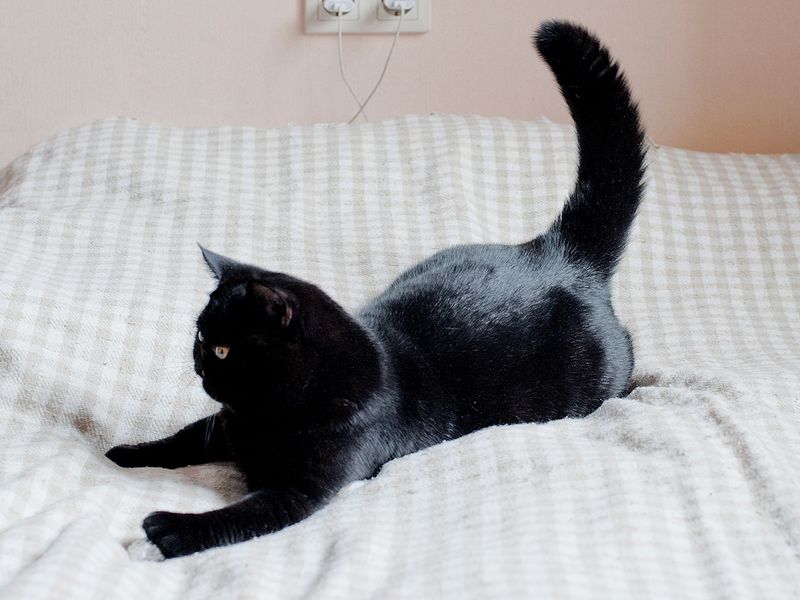📖 Table of Content:
- 1. The Gift of Earned Trust
- 2. Space Without Guilt
- 3. Silent Understanding During Grief
- 4. Permission to Be Imperfect
- 5. The Joy of Being Chosen
- 6. Modeling Healthy Boundaries
- 7. Quiet Company for Introverts
- 8. Validation Through Slow-Earned Affection
- 9. Freedom from Constant Responsibility
- 10. Stress Reduction Through Purring
- 11. Lessons in Self-Care Without Guilt
- 12. The Comfort of Predictable Unpredictability
Cat people know there’s something special about their feline friends that dogs simply can’t match. While dogs offer boundless energy and obvious affection, cats provide subtle emotional support in ways that are uniquely their own. Our feline companions connect with us on a different wavelength, fulfilling emotional needs that even the most devoted canine couldn’t understand. Here’s why cats hold a special place in our hearts and emotional lives that no dog can replace.
1. The Gift of Earned Trust
Cats don’t give their affection freely like dogs do. You have to earn a cat’s trust and love through patience and respect. This creates a deeper bond when they finally choose you as their person.
The slow-building relationship with a cat teaches us that the most valuable connections take time. When your cat finally decides to sleep on your lap after weeks of keeping its distance, the feeling is incomparable.
Dogs might love everyone who gives them treats, but cats are selective. This exclusivity makes you feel truly special when your cat shows you affection that they don’t show to others.
2. Space Without Guilt
Unlike dogs, who may whine or stare sadly when you need alone time, cats respect your need for space. They understand boundaries naturally and won’t make you feel guilty for wanting solitude.
Cats demonstrate healthy relationship dynamics by balancing togetherness with independence. They’re there when you need comfort but won’t demand constant attention when you’re busy or need to recharge.
For those who struggle with people-pleasing tendencies, a cat’s self-sufficient nature provides a refreshing example of balanced relationships. They show that love doesn’t require constant togetherness or emotional dependency.
3. Silent Understanding During Grief
During times of sorrow, a cat’s quiet presence offers comfort without the overwhelming energy of a dog. Their gentle purring creates a soothing soundtrack to healing that reaches deep into our nervous system.
Cats seem to intuitively know when you’re grieving. They’ll often sit closer than usual, offering their warm presence without demanding interaction. This silent companionship meets an emotional need that talkative humans and energetic dogs simply cannot.
Many cat owners report their pets becoming more attentive during illness or emotional distress. Their subtle shift in behavior acknowledges your pain without making it the center of attention.
4. Permission to Be Imperfect
Cats don’t care if your house is messy or if you haven’t showered. They accept you completely without judgment, which helps us embrace our own imperfections. Their unconditional acceptance is different from a dog’s enthusiastic approval of everything.
When your cat curls up next to you after you’ve had a day of failures, their presence reminds you that your worth isn’t tied to achievement. They don’t measure you by human standards of success or failure.
Watching cats groom themselves meticulously but still occasionally miss spots teaches us that perfection isn’t necessary. Their balanced approach to self-care without obsession offers a healthy model for self-acceptance.
5. The Joy of Being Chosen
Dogs may love everyone, but when a cat specifically selects you from a room full of people, it delivers an unmatched feeling of being special. That moment when a normally aloof cat jumps onto your lap, ignoring everyone els,e fulfills our deep need for recognition.
Cat owners understand the quiet pride of being their pet’s chosen one. Unlike dogs, who might shower affection on strangers, cats are selective about their inner circle, making their choice of you particularly meaningful.
Research shows this selective behavior stems from cats’ natural independence rather than indifference. When they choose to spend time with you, it’s a deliberate decision, not a programmed response or dependency.
6. Modeling Healthy Boundaries
When a cat’s had enough, they simply walk away—no drama, no guilt. And when they’re ready, they come back. It’s a gentle reminder that setting boundaries is healthy and necessary for emotional well-being.
Watching how confidently a cat removes itself from uncomfortable situations encourages us to honor our own needs. Their unabashed self-care reminds us that saying “no” is sometimes the healthiest choice.
Unlike dogs, who often endure discomfort to please their owners, cats prioritize their well-being without apology. This modeling helps people who struggle with people-pleasing to recognize the importance of self-protection and emotional boundaries.
7. Quiet Company for Introverts
For introverts drained by constant social interaction, a cat’s quiet presence offers companionship without conversational demands. Their gentle purring provides background comfort without requiring verbal responses or emotional labor.
Cats respect the sanctity of silence. They don’t bark when someone walks by or demand walks when you’re exhausted, making them perfect companions for those who find peace in quietude.
Many introverts report that their cats seem to sense when social batteries are depleted. A cat will often settle nearby during recovery time, offering the comfort of presence without the drain of interaction – something dogs with their enthusiastic greetings rarely understand.
8. Validation Through Slow-Earned Affection
When a formerly standoffish cat finally headbutts your hand or kneads your lap, you feel a sense of accomplishment that dogs rarely provide. This gradual warming up validates your patience and respect for their autonomy.
Cat lovers cherish these breakthrough moments as signs of genuine connection. The first time your cat sleeps on your bed or greets you at the door feels like earning a rare achievement because it wasn’t given automatically.
This slow-building relationship mirrors healthy human connections that develop naturally over time. Unlike a dog’s immediate adoration, a cat’s growing trust teaches us that meaningful relationships often require patience and mutual respect rather than instant gratification.
9. Freedom from Constant Responsibility
Cat ownership offers companionship without the rigid schedule dogs require. No predawn walks in freezing rain or guilt-inducing sad eyes when you’re too tired for play sessions. This lower-maintenance relationship fits perfectly with busy or unpredictable lifestyles.
Cats’ self-sufficiency meets our need for both connection and freedom. Their independent nature means they can entertain themselves when you’re busy but still provide affection when you’re available.
For people with depression or chronic illness, this flexibility is especially valuable. On days when self-care is challenging, cats require less physical exertion while still providing emotional support, striking a balance that many dog owners can only envy.
10. Stress Reduction Through Purring
The unique frequency of a cat’s purr (between 25-150 Hz) has been scientifically proven to reduce stress hormones and lower blood pressure. This natural sound therapy is something no dog can replicate, providing healing vibrations that work directly on our nervous system.
Feeling a purring cat on your chest creates a meditative moment that grounds you in the present. The rhythmic vibration acts as a form of sound healing that can break cycles of anxious thoughts.
Studies show that cat owners have a 40% lower risk of heart attack than those without pets. Researchers believe the stress-reducing effect of purring contributes significantly to this health benefit – an emotional need fulfilled through a physical response unique to cats.
11. Lessons in Self-Care Without Guilt
Cats prioritize their needs unapologetically, showing us how to practice self-care without shame. They groom when they need grooming, sleep when tired, and play when energetic – all without seeking permission or approval.
Watching a cat stretch luxuriously in a sunbeam reminds us to find small pleasures without justification. Their natural ability to enjoy comfort teaches us that self-nurturing isn’t selfish but necessary.
Unlike dogs, who often put their owner’s approval above their own needs, cats demonstrate balanced self-respect. They show affection but never at the expense of their well-being – modeling a healthy relationship with both themselves and others that many humans struggle to achieve.
12. The Comfort of Predictable Unpredictability
With cats, life is predictably unpredictable. They offer the steady rhythm of routine alongside unexpected bursts of play, giving us both calm and delight in equal measure.
There’s something deeply satisfying about knowing your cat will perform their evening ritual of making biscuits on your lap while also wondering what household object they’ll decide is suddenly terrifying tomorrow. This balance keeps life interesting without being chaotic.
For people who thrive with gentle surprises rather than overwhelming change, cats provide the perfect emotional ecosystem. They’re creatures of habit who occasionally break their own rules, teaching us to find comfort in routine while embracing small adventures.

